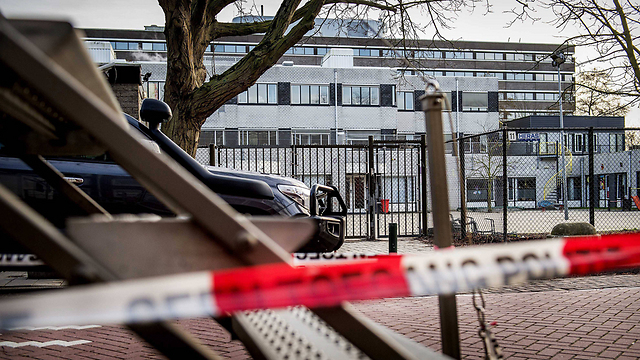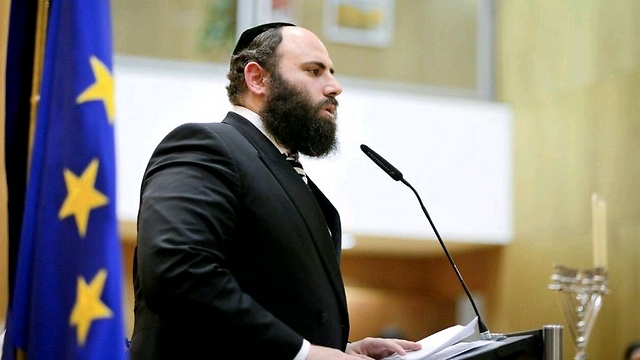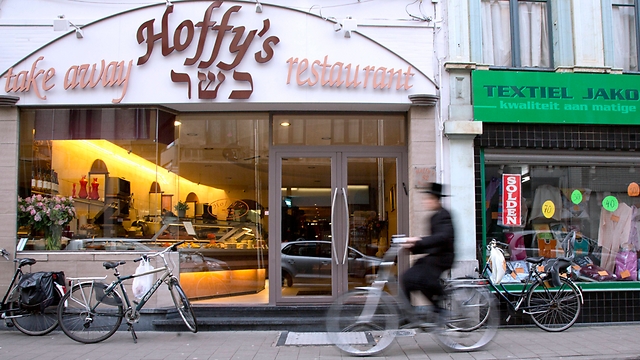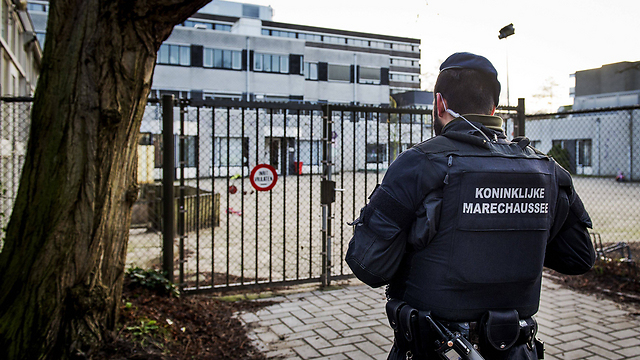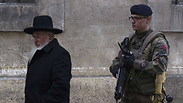
Many Jewish schools in Belgium and the Netherlands were closed Friday, reflecting the heightening of an atmosphere of caution that has prevailed across Europe in wake of anti-terror raids and since Islamist gunmen killed 17 people in Paris last week at a Jewish grocery and the offices of the satirical French newspaper Charlie Hebdo. Additional schools and Jewish sites were also said closed in Denmark.
Prof. Maurice Sosnowski, the head of Belgium's Jewish community, noted that the decision to close the Jewish schools in the cities of Brussels and Antwerp was made only as a means of protection.
"There is no direct treat, only prevention," he said. "We didn't receive any real threats of harm to Jewish schools or locations in the community, not at all. Security measures are reinforced in schools and Jewish institutions, particularly in the community's offices and synagogues."
Related stories:
- Dutch Jewish school closed after anti-terrorist raid in Belgium
- Belgium, France, Germany arrest over 20 suspected terrorists; bomb threat in Paris
- FM Lieberman: I wonder if EU will condemn France, Belgium for excessive use of force
Sosnowski further stated that "it is our job to ensure the protection of synagogues and not ask community members who among them wants to go and who does not."
Rabbi Menachem Margolin, the head of the European Jewish Association, took a more militant stand, and sent a letter to interior ministers in the EU requesting they issue arms licenses to teachers and principals in Jewish schools throughout the continent.
"We requested that they allow a number of members of the community in every educational institution to carry guns, especially the teachers, principals and rabbis in the school. In light of the recent events, there is no choice but to be prepared. There has to be someone who can respond in real time if something happens."
Rabbi Margolin noted that the Jewish community in Belgium has been living in fear for a long period of time, and said that the "decision to close the schools was made because a number of terrorists who were supposed to be arrested by the police yesterday have escaped."
According to him "there is concern that they will carry out a showcase terrorist attack against us before the police reach them."
The rabbi says this not a new issue: "Anti-Semitism is on the rise and in the past months, we are witnessing a phenomenon of harassment by youths, some who have expressed their support of the Islamic State."
Rabbi Raphael Evers, who is the head rabbi for Amsterdam's Jewish community and also leads the Rotterdam Federation of Jewish Orthodox Communities, said that authorities only closed a haredi heder (religious elementary school).
"So far we have not received specific threats, but the authorities are not taking any risks. Classes are held as usual in two other Jewish non-Orthodox schools – the Rosh Pina primary school and the Jewish high school Maimonides – but there is increased security there."
Rabbi Evers said that it is likely that the Haredi school was closed due to the higher visibility of religious clothing and symbols among the students.
Dutch Jewish schools and prominent Jewish monuments - including Amsterdam's Anne Frank House and Jewish Historical Museum - have had extra security since June, on advice of the country's national anti-terrorism office. That followed a terrorism-related shooting at the Jewish Museum in Brussels, Belgium, in May that killed four.
Meanwhile, more than two dozen suspects were arrested in Belgium, France and Germany in continuing searches for suspected terrorists, authorities said Friday, as US Secretary of State John Kerry arrived for talks in Paris.
Thirteen people were detained in Belgium and two arrested in France in an anti-terror sweep following a firefight in which two suspected terrorists were killed, and more suspects are being sought, Belgian authorities said.
French and German authorities arrested at least 14 other people Friday suspected of links to the Islamic State group with Europe on alert for new potential terrorist attacks.
The arrests made in the region south of Paris including Montrouge, where a young policewoman was killed in the attacks, were in connection with suspected "logistical support" for the shootings, an official said.
Reuters and AP contributed to this report














